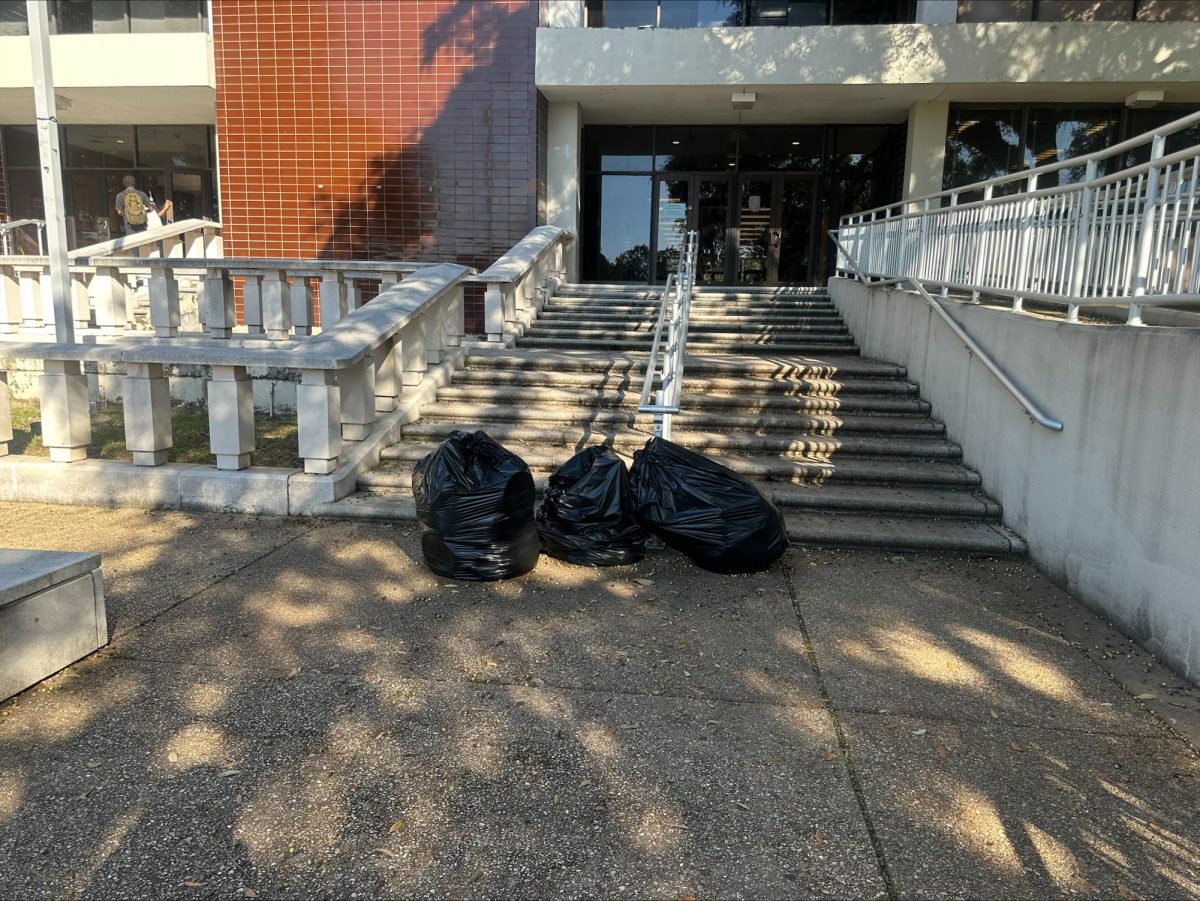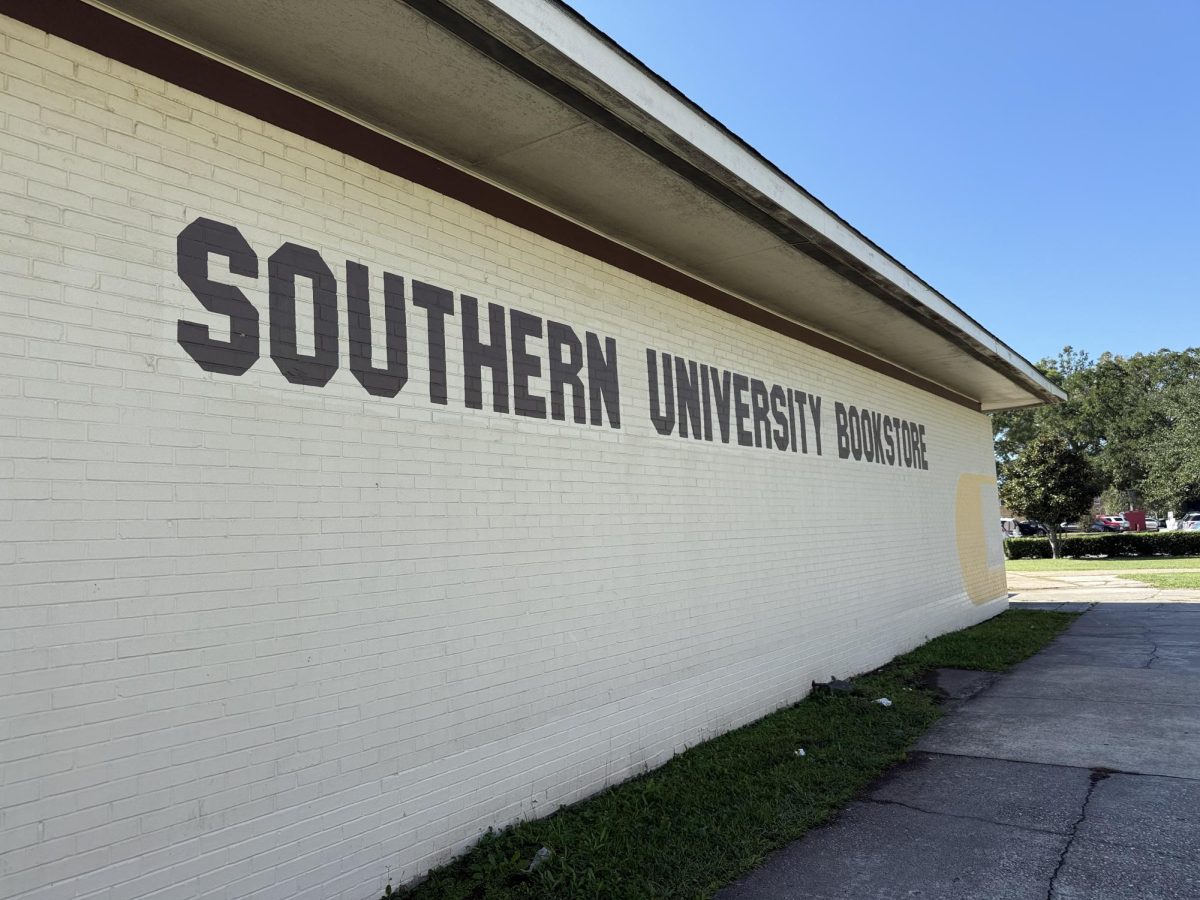With the use of the Internet for everyday shopping and banking transactions increasing daily, so is the possibility of becoming a victim of identity theft, experts say.
College students, in particular, use their personal computers in much of their everyday life activities and personal business, prompting experts to heed fare warnings about the door that is being opened when a person shares his or her personal information on the World Wide Web.
“My biggest concern is when students use public computers to distribute their personal information,” said LaTonya Jones, director for the Department of Auxiliary Services at Southern.
“Students must be sure to close out completely and log off (of the computers),” Jones said.
The United States Office of Inspector General reported almost half of all college students receive credit card applications on a daily or weekly basis. OIG officials also stated that many students throw out credit card applications without destroying them first.
In their reports, the OIG said nearly a third of all students rarely, if ever, reconcile their credit card and checking account balances, and almost 50 percent of the nation’s college students have had grades posted by their Social Security number.
According to a recent CompUSA TechInsights survey of college students nationwide, almost 88 percent of the respondents said they keep personal files on their computers.
Survey findings went on to reveal that while most students are aware of basic computer security procedures, many do not practice them, leaving them and their parents open to identify theft.
SU OFFICIALS SPEAK ON IDENTITY THEFT
Southern University police officials said students often times leave home for college with bank account, credit card, driver’s license, Social Security numbers and birth certificates in tow. The essential documents a criminal needs to steal someone else’s identity.
Sgt. Jocelyn Johnson, a SUPD officer, advises students to mail their information back home once the registration process is complete.
“They (the university) have moved in the right direction to prevent students from being at risk for ID theft by creating student ID numbers that can be used in place of a student’s Social Security number,” said Johnson.
The old university issued ID cards consisted of a mug shot of the student, staff or faculty member with their full name and social security number placed directly underneath their photos.
“It was desired by the administration that said it wasn’t proper,” Jones said, shedding light on the recent changes made to ID cards in August. “The students complained to the parents and the parents complained to us and we finally got it (SSN) off.”
Jones urges students to be more responsible with the new ID cards.
“The highest amount of cards a person has lost, on record, is between 9 and 10,” Jones said. “This is why we are pushing for the increase of fees that have to be paid in order to buy a new one.”
Johnson said SUPD receives the most reports of lost and stolen ID cards in the fall because of the football games.
“Everybody wants to go to the games,” Johnson said. “If you paid your tuition and someone is using your ID to get into (the) games, that is considered a form of identity theft.”
Dexter Reynolds, a junior biology major from Rockmart, Ga., said he is aware of identity theft but doesn’t worry about it.
“I don’t feel that I’m at risk of identity theft because I have prepaid legal which monitors my account 24/7 and alerts me of any suspicious activity,” said Reynolds. “I like to promote that because it’s essential to everyone.”
VICTIMS RESPONSIBLE IN CRIME’S AFTERMATH
The unfortunate reality of identity theft is although victims have not committed a crime, they are still held responsible for cleaning up the damage, and re-establishing a good standing with their credit history.
Johnson said she personally knew a student, when she was attending Southern during her undergraduate studies, that fell victim to identity fraud.
“His own friend took his Social Security number,” said Johnson. “I see him around from time to time so I guess he’s back on his feet.”
Bermeshia Thomas, a junior biology major from Monroe, said her family has personally been affected by identity theft when someone made fraudulent purchases under her father’s name, making it difficult for her parents to receive financing towards the purchase of a new home.
“Someone charged about $10,000 in computer equipment to his name,” Thomas said. “Instead of going through all the chaos, he just paid it off.”
Officials say it can take months, or even years, for victims of identity theft to clear up all the damage to their credit records.
CompUSA representatives recommend college students avoid accepting e-mails requesting personal information, change banking and other passwords regularly, lock up laptops and cell phones when unattended, avoid using cell phones to check account balances and to have credit cards or billing statements sent to your home rather than school in order to help prevent identity theft.
For more information regarding identity theft, log onto to www.ed.gov/misused.
Categories:
Carelessness leads to increased rates of identity theft for students
September 22, 2006
0





